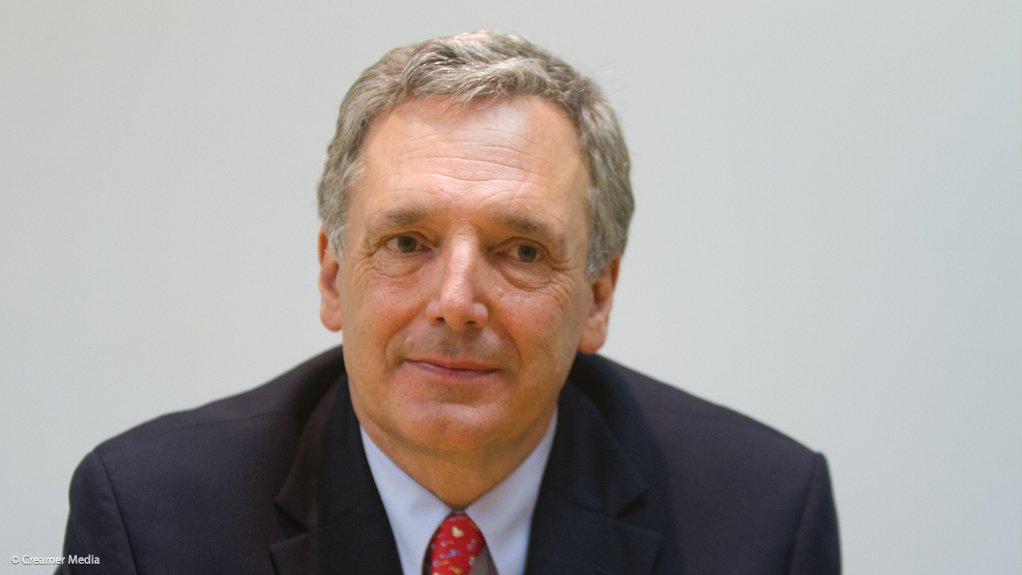Pick n Pay chair Gareth Ackerman has slammed the government for its "inaction" in the face of South Africa's structural economic problems, warning of an "existential threat" to the food industry, as well as social unrest stemming from food shortages, if power outages worsen.
Speaking at an investor presentation after the release of the JSE-listed retailer's full year results, Ackerman pulled no punches, saying that instead of trying to find solutions, the government was focused on blaming retailers for rocketing inflation.
SA's support of Russia will also possibly come at the expense of far more valuable relationships with Western Europe and the US, he said, and given the risk to crucial trading agreements, it was "beyond understanding."
In arguably the hardest-hitting criticism of the state to date from a listed company, Ackerman also pointedly refused to refer SA's ongoing power interruptions as loadshedding, referring to them instead as "blackouts" throughout his speech.
These have been costing Pick n Pay about R60-million a month recently.
"Shockingly, 37% of the cost of each litre of diesel we have bought – over half a billion rand’s worth – has gone into government coffers and the [Road Accident Fund] as a windfall tax. This is unconscionable, particularly when rolled up across the economy and the hardship the blackouts are causing," he said.
Pleas by retailers to be included in the diesel tax rebate, had fallen on "deaf ears", while elevated inflation was being driven largely by external factors.
Eskom had also transferred some of its "costs to industry through the stages of blackouts", with companies having to "absorb these costs".
Despite this, he said Pick n Pay had, through a "herculean effort" this year, kept its internal inflation rate below official consumer price inflation and at less than half of food inflation, which in March reached 14% - the highest in more than a decade.
Seemingly referring to a report from the Competition Commission in March that flagged possible unreasonable price increases of staples such as cooking oil and bread, he argued it was "distressing to see irresponsible efforts to shift the blame for food inflation onto retailers", saying:
"The recent statements by the Competition Commission and government spokespeople are a case in point. They have inexplicably accused the sector of making unjustifiable profits. This is incorrect and irresponsible."
Food industry at risk
Ackerman also said he felt "compelled" to warn that the entire "food industry is under existential threat".
"The probability of social unrest relating to food shortages and possible store closures if blackouts get too high is now heightened."
Ackerman said that, worryingly, about 45% of SA's total available food supply was being lost or wasted annually and that one of the consequences of "blackouts" was increased food waste.
"In a country that already registers troubling levels of poverty and hunger, this is unacceptable."
He said Pick n Pay had, over the past four years, reduced food waste by nearly 30% as it worked "steadily towards our target of 50% by 2030".
"We have also donated more than 880 tonnes of edible surplus food to [nonprofit surplus food redistribution company] FoodForward SA, valued at more than R35-million. We are also working with government to change some of the regulations which would allow more edible surplus food to go to those who really need it."
Ackerman said the government was also "mixing up policy with politics" at a time when "growth-orientated policy change and certainty" should be the only items on the agenda.
"How our government can risk AGOA [the African Growth and Opportunity Act, a trade agreement with the US] and other bilateral agreements through overt support for Russia, after its invasion of Ukraine, and threatening to withdraw from the ICC [International Criminal Court] is beyond understanding."
It could also jeopardise the $8.5-billion (about R155-billion) pledge of Western economies to fund SA's energy transition away from coal, he said.
"Without this capital, it will be difficult to end blackouts and reduce our reliance on coal-generated power.”
He argued SA's growth depended on important policy shifts, but warned the country was "unlikely to see them happen before next year's elections".
Ackerman said that the power interruptions had "placed the economy under enormous pressure" and that SA was not growing at the required rate to counter unemployment and improve living standards.
"We need to grow the size of the cake before we try to cut it differently," he said.
EMAIL THIS ARTICLE SAVE THIS ARTICLE
To subscribe email subscriptions@creamermedia.co.za or click here
To advertise email advertising@creamermedia.co.za or click here











